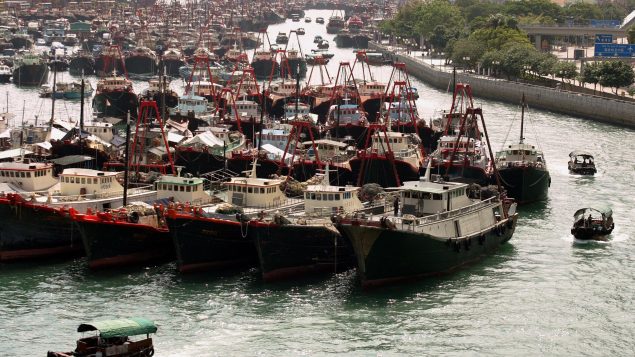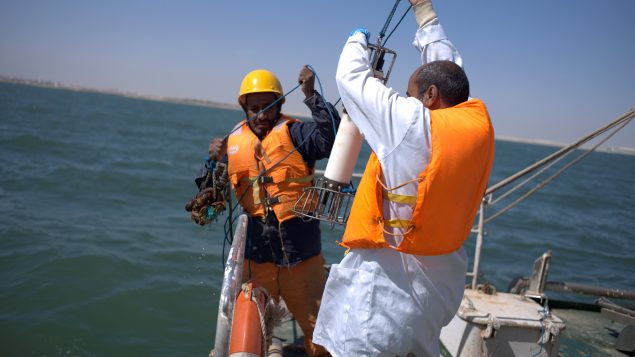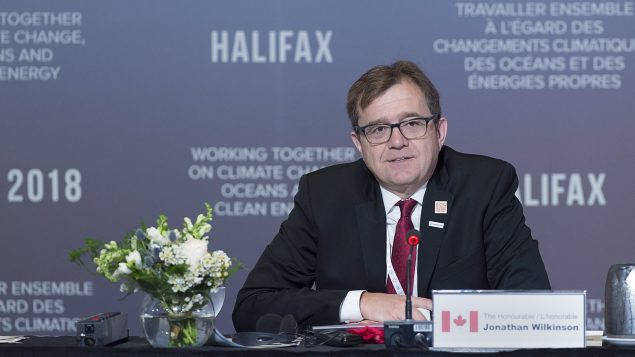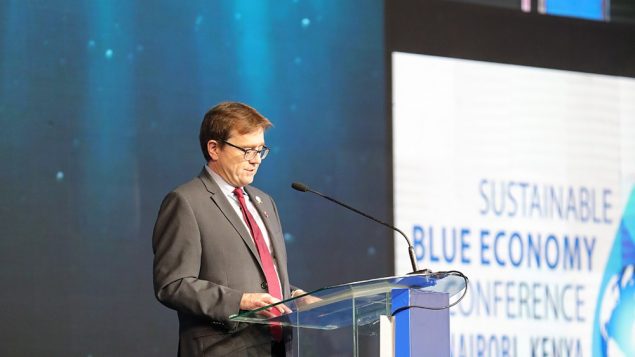Canada is pledging $10.5 million to a United Nations initiative to advance our understanding of oceans and preserve their health, and develop a sustainable “blue economy,” harnessing the potential of our oceans, seas, lakes and rivers, federal officials announced Wednesday.
Minister of Fisheries and Oceans Jonathan Wilkinson made the announcement in Nairobi, Kenya, at the conclusion of the Sustainable Blue Economy Conference, co-hosted by Canada, Kenya and Japan.
This first-ever global conference on the sustainable blue economy attracted more than 17,000 participants from over 150 countries.
According to the United Nations estimates, half of the world’s population lives within 60 kilometres of the sea and three quarters of all large cities are located along the coast.
In Canada, the oceans are a source of approximately 350,000 jobs and generate approximately $36 billion annually in GDP through fisheries and aquaculture, energy, shipping, tourism and recreation, Wilkinson said.
“Oceans are an important economic generator and are going to be an even more important economic generator in the future,” Wilkinson told Radio Canada International in a phone interview from Nairobi. “But there are also areas where we have some very significant environmental challenges.”
ListenHarnessing the power blue economy

FILE PHOTO: Hundreds of fishing boats sit idle in Aberdeen harbour as Hong Kong fishermen adhere to a temporary ban on fishing for two months, 01 June 2004. (Peter Parks/AFP/Getty Images)
These challenges relate to the sustainability of fishing, maritime shipping, offshore oil and gas industries, oceans plastics and expanding tourism and recreational opportunities in the oceans, he said.
“The blue economy is trying to integrate the environment and the economy in a way where we can actually have conversations about how do we see the oceans and pursue the oceans as economic generators for all communities that border on the oceans, but do so in a manner that can be sustainable for us now and for future generations,” Wilkinson said.
To this end the federal government will contribute $9.5 million to advance activities of the UN Decade of Ocean Science, an initiative that will run from 2021-2030, led by the Intergovernmental Oceanographic Commission, Wilkinson said.
Canada is also pledging up to $1 million to the World Economic Forum’s Friends of Ocean Action and to support to the office of Peter Thomson, the United Nations Special Envoy for the Ocean.
“A healthy ocean is essential to life on Planet Earth. That health is under threat due to climate change, pollution and harmful fishing practices,” Thomson said in a statement. “I welcome Canada’s leadership in mobilizing action from business, civil society, communities, governments and policymakers to implement the solutions urgently needed to conserve and sustainably use the ocean’s resources.”
Setting up a knowledge hub

Researchers from the Mauritanian Oceanography and Fisheries Research Institute (IMROP) sample seawater off the coast of Nouadhibou, the main port in Mauritania, April 14, 2018. Picture taken April 14, 2018. (Sylvain Cherkaoui/REUTERS)
The Canadian delegation, which also included Canada’s envoy to the United Nations Marc-André Blanchard, also heard from developing nations who signalled their need for help in fisheries management, Wilkinson said.
Canada has committed to setting up a knowledge hub where different states can learn from each other in terms of best practices with respect to fisheries management, he said.
“We also recognize that there is capacity building that has to be required and so we’ve made the offer that we’ll work towards exchanges of staff and information with various countries around the world to ensure that we are actually learning from each other, and that we’re able to transfer some of the knowledge that Canada has developed over many decades,” Wilkinson said.
Canada takes the lead

Canadian Fisheries Minister Jonathan Wilkinson addresses a session on oceans as the G7 environment, oceans and energy ministers meet in Halifax on Wednesday, Sept. 19, 2018. (Andrew Vaughan/THE CANADIAN PRESS)
Canada’s participation in the Sustainable Blue Economy Conference came from the priorities the federal government identified for its presidency of the Group of Seven (G7) countries in 2018, Wilkinson said.
Canada hosted a G7 ministerial meeting on the theme of Working Together on Climate Change, Oceans and Clean Energy in Halifax, in September.
“One of the key areas that we focused on were oceans-related issues: sustainability issues related to oceans plastics, sustainable fishing with a focus on illegal unregulated fishing,” Wilkinson said. “Those were important conversations that we had with our partners in the G7, but we wanted to ensure that this conversation is one that is global in scope, the challenges that we’re facing are global in scope, and some of the opportunities in the blue economy are things that are very important for the developing world.”
At the ministerial Wilkinson announced support for sustainable oceans and fisheries with an investment of up to $11.6 million to combat illegal, unreported and unregulated fishing. Canada also became a signatory to the Global Ghost Gear Initiative.
- Ottawa takes aim at illegal fishing and discarded fishing gear
- Canada calls for closer international cooperation in combatting illegal fishing and ‘ghost gear’
Following the ministerial, Canada worked with Kenyan government, which led the development of the conference and reached out to countries in Africa, the Caribbean and in the Pacific to start to broaden the conversation with respect to challenges and opportunities in the blue economy, Wilkinson said.
“The other piece of is, we were really looking to try to find ways towards action,” Wilkinson said.
“Enough discussion, we know what some of the issues are, how can we actually start to make progress,” he added.







For reasons beyond our control, and for an undetermined period of time, our comment section is now closed. However, our social networks remain open to your contributions.